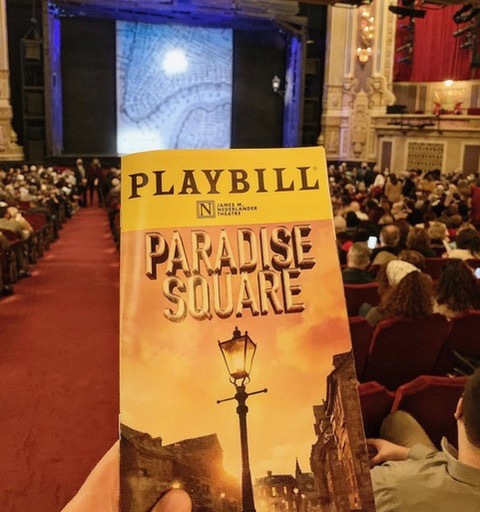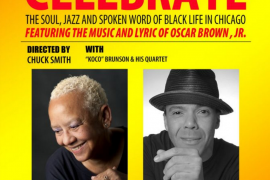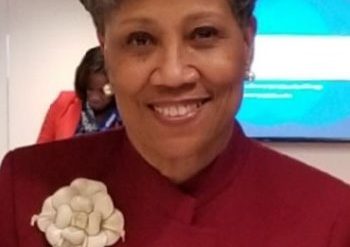Broadway in Chicago brings one of the most riveting plays of the year to the stage with Paradise Square. From the creators of another great play, Beautiful: The Carole King Musical, and music by Jason Howland, lyrics by Nathan Tysen and Masi Asare, and a book by Christina Anderson, Marcus Gardley, Craig Lucas, and Larry Kirwan; we witness the historical events that took place in 1863, New York. Referred to as the Manhattan draft riots, we learn of a discontented class of people frustrated over laws that forced them into being drafted into a war for a country that never cared about them as humans.
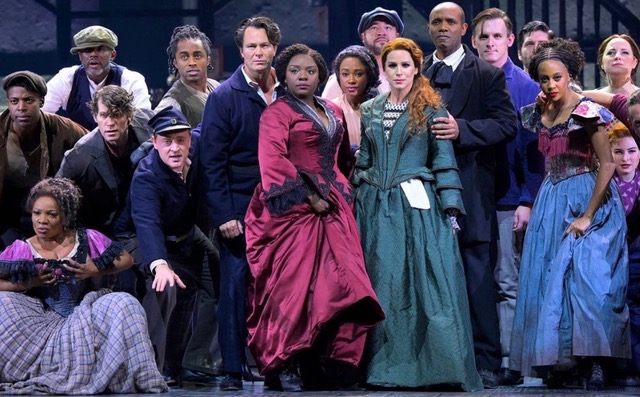
The play centers around a bar owner by the name of Nelly O’Brien in the Five Points neighborhood. Originating in 1881, when streetcar signs couldn’t fit the street names, the Five Points of Welton Street, Washington Street, Twenty-Seventh Street, and East Twenty-Sixth Avenue is where we witness a night of disturbing events. First, immigrants and Blacks living in peace and intermarrying find themselves at odds over why some were forced into war while others were free from being drafted. Then, when President Lincoln instituted the first Federal Draft to support the Union Army, the racial harmony ended between the Irish and Blacks, who received slightly better treatment with jobs. But, being poverty-stricken, the lack of employment and seeing whites avoid military service decimates the will of Italian-Americans; they formed a street gang called the Five Points Gang and tensions grew.
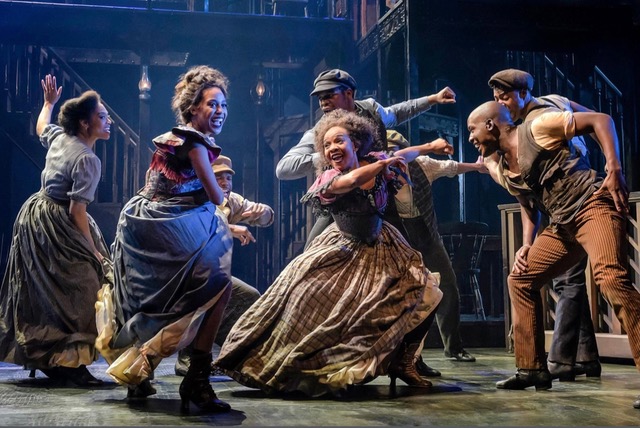
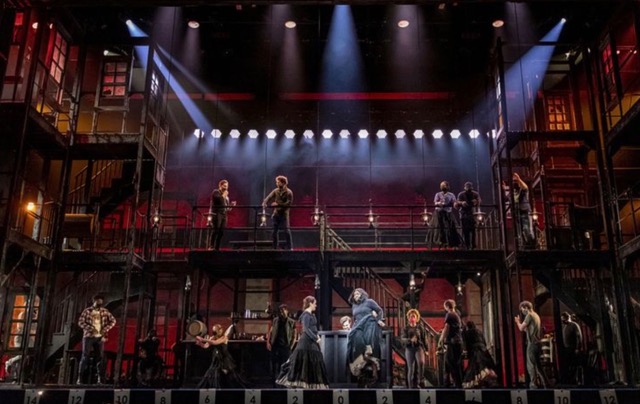
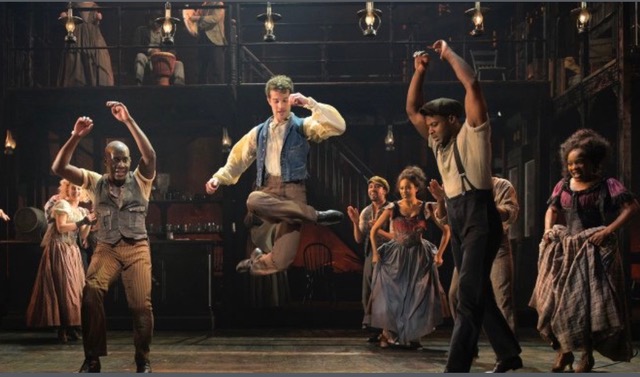
Nelly, who married an Irishman that goes off to war, has had continual struggles with keeping her local saloon called Paradise Square, receives a tax bill she can’t afford. But the crew of impoverished bar workers comes up with a plan to save the pub with a dance-off. The winner gets $300, enough to pay their way off the draft list. Willie, an Irishman who just came from the boat, learns about the prize money and how it can help him avoid the draft, he competes, but Washington Henry needs money to escape his past. So there is a dance-off to win the prize, and the hooligans in the saloon will make the final decision.
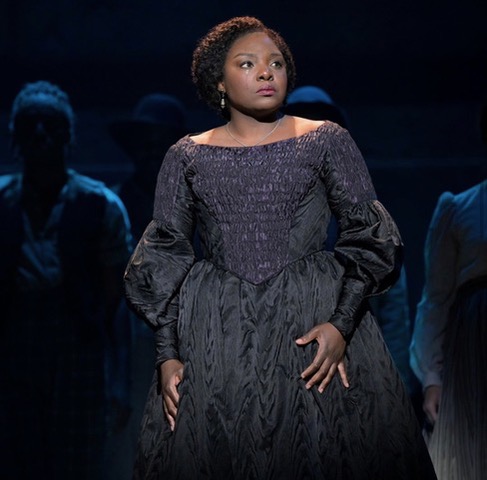
With the music and dancing flourishing on stage, you could feel the energy led by Tony Award nominee Joaquina Kalukango, who played the lead role of Nelly O’Brien. Kalukango’s operatic voice brought the crowd to its feet as she sang, “Let It Burn.” Her presence on stage was electrifying, but it doesn’t overpower the many talented performers in this play. And there are too many to name.
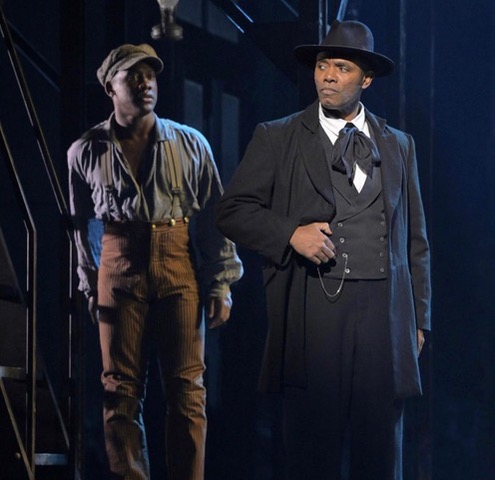
We will mention the talented Nathaniel Stampley, whom we had the pleasure and enjoyed interviewing on our radio show, Let’s Stay Together Talk. Stampley plays a Black minister named Reverend Samuel Jacob Lewis, married to Annie, an Irish-Catholic woman. Stampley’s range and powerful voice that will take you back to the days of activist Paul Robeson made me rethink trying out for theater as an opera singer. Hedy Weiss would be happy to hear me say that.
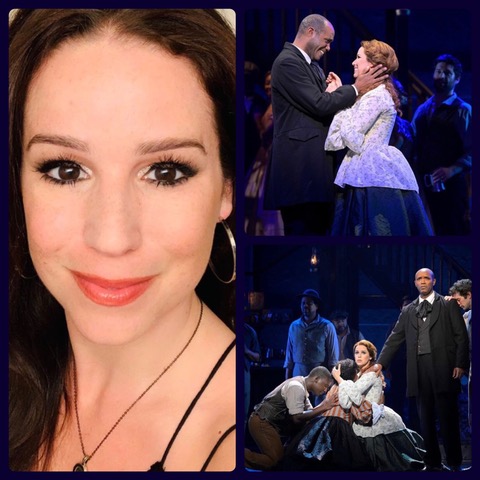
Chilina Kennedy is another force on the stage as Annie Lewis; a strong Irish woman no man would dare to challenge but desirable to the eye has a voice powerful enough to get her message across loud and clear. That includes singing.
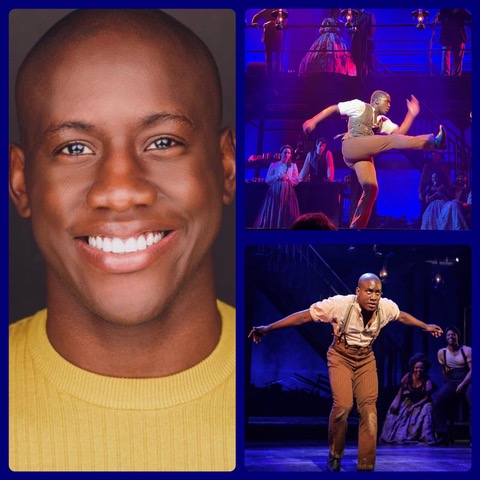
Matt Bogart (Willie O’Brien) and Sidney DuPont
(Washington Henry) commanding dancing and acting performances will capture audiences with their stories of being lost and in love, hoping to find a new life far from their past. We loved the combination of the African dance and ballet mixed with the Irish jig and Ceili that had a bit of street dancing. But, it’s the beautiful way this play merges the singing, dancing, and acting that will chill your soul.
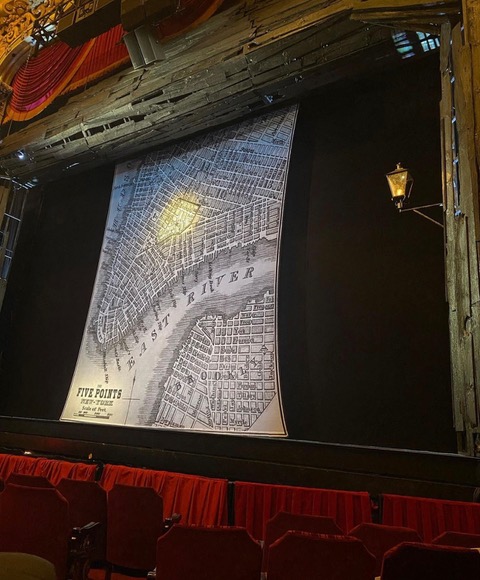
Larry Kirwan’s grandfather told him the story of Five Points. The playwright Craig Lucus and Marcus Gardley do an excellent rewrite of the story from the book, including songs from Stephen Foster. Foster, known as “the Father of American Music,” lived in the Five Points area. He was a songwriter who was down on his luck, seeking to recapture his love of music and rediscovered it playing at Paradise Square.
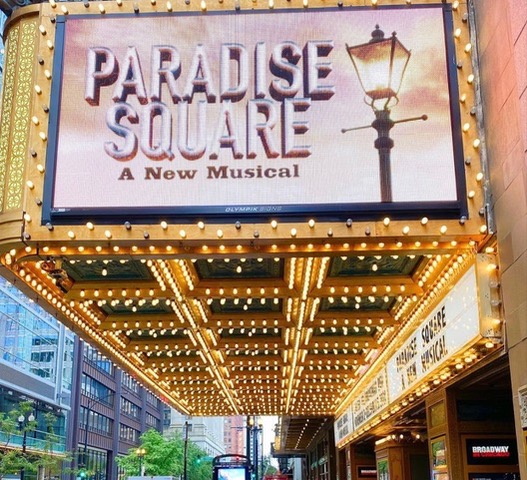
Although we recommend audience see Paradise Square, there were some things The Netherland Theater needs to address:
The large, open auditorium kills the acoustics, and this play has such a vibrant sound and singing; its bad acoustics steals a little life from each play. Known originally as The Oriental Theater, this 1926 edifice, designed as a deluxe movie palace and vaudeville venue, needs a little sound boost. Although most people may not complain or notice the difference, we would love to have heard four-chord harmonic sequence singing.
With winter approaching, The Netherland will need to develop a better plan to bring audiences into the theater. The long lines we experienced yesterday will surely bring out the holiday Grinch if people have to stand out in the cold during the winter.
Overall, Let’s Play Inc.(Rick McCain), highly recommends Paradise Square. It’s a holiday gift the family will surely enjoy.


